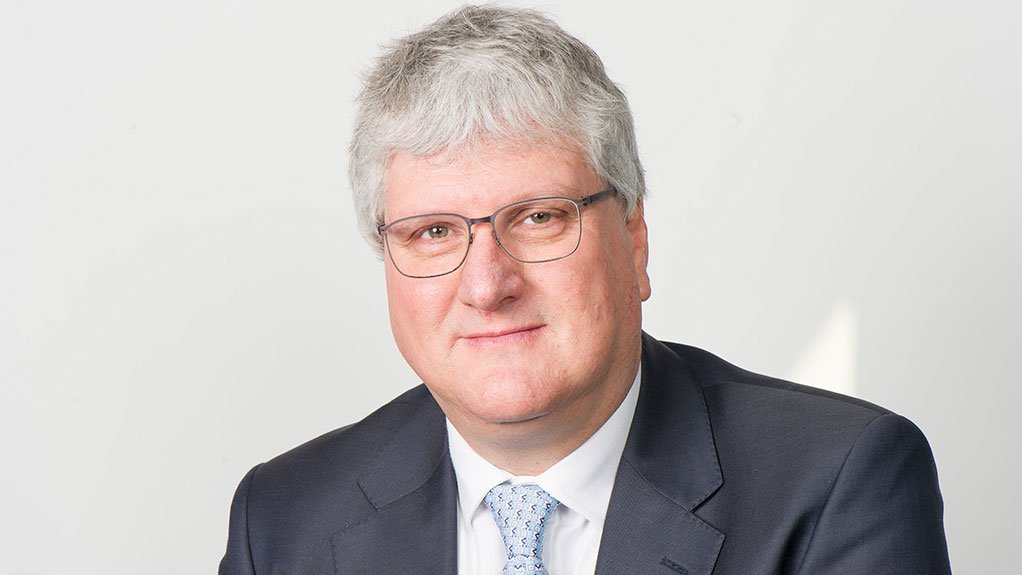Bidcorp delivers revenue, profit growth despite cost of living challenges facing consumers
JSE-listed food services multinational Bidcorp reported net revenue for the financial year ended June 30, of R235.6-billion, up 4.3% in rand terms from the R225.9-billion reported in the prior financial year, but 6.8% higher in constant-currency terms on the preceding financial year.
The net revenue growth reflects organic and acquisitive growth, despite near-zero food inflation and a flattish contribution from its Australasia businesses.
Further, group trading profit increased by 6.4% to R12.9-billion, up from R12.2-billion in the 2024 financial year, and increased 9.3% in constant-currency terms. The year under review's trading profit margins improved to 5.5%, up slightly from the 5.4% trading profit margins in the 2024 financial year.
“The year was not easy. The macroeconomic environment was skewed more towards the uncertain and difficult than the positive. Consumers, generally, are still struggling with the cost of living crisis around the world,” CEO Berhard Berson said during a presentation of the company's results on August 27.
“Food inflation has also come off quickly from the highs of prior years, although we see a slight uptick and normalisation in food inflation moving forward. Cost inflation is higher than food inflation, and this is a tricky area to navigate,” he added.
“Overall, we are satisfied with the performance of the group, which has set an acceptable pace of growth in the current macroeconomic environment. We manage each business in local currency and run each according to its own local conditions.”
Further, gross capital investment in property, plant and equipment of R6.3-billion remained elevated, and included R3.8-billion of expansionary investment in new capacity, the largest portion of which had been invested in the UK. This was up from R5.8-billion in gross capital investments in the prior financial year.
This was investment for future growth, some of which was timing-related and had been delayed by the impact of Covid-19, which the company was now catching up on, Berson added.
Other investments were related to environmental, social and governance (ESG) requirements, such as buying electric vehicles that cost about triple that of internal combustion engine vehicles, but the company must make these investments, he said.
Working capital remained well-managed during the year under review. However, there were some supply chain issues the company's businesses around the world faced, which necessitated that it increase inventories to cater for volatility.
“We believe the returns on these investments, in inventory and the capital investments, are good. It is necessary to make these short-term investments and, while returns come down in the short term, they will provide long-term benefits.
“It is for this reason that we own about 73% of our own property portfolio. Property is an important component of what we do. We remain a brick-and-mortar business with warehouses and logistics and distribution operations.
“We want to be within about 30 minutes travel time of about 90% of our customer base in each country in which we operate. This enables our high level of services and enables us to demand the margins that we do,” said Berson.
Additionally, Bidcorp estimated that it had achieved real organic growth of about 4% for the year under review, and it was pleased with this growth under the circumstances, he added.
The group also pursued its sustainability goals, but in a practical manner. The group operated many vehicles and warehouses, which required lots of refrigeration and electricity to maintain the required temperatures.
“We have seen a 5% reduction in our baseline emissions across the group, and we are on track to achieve our targets by 2034. Importantly, we remain committed to our ESG commitments, but we take a pragmatic approach to sustainability initiatives and only apply fit-for-purpose solutions,” he said.
Bidcorp's use of electricity was one of the main contributors to its total emissions across the group. Each country was also at a different point in its journey. Some countries' grid-based electricity was also more sustainably generated than other countries' electricity.
The company, by necessity, must run its refrigeration constantly throughout the day and, while it deployed solar solutions where viable, it relied on electricity sourced from countries' grids.
“Most countries in our emerging-markets cluster have low carbon-efficiency ratios, and their sources of electricity generation are typically dirty emitters [of greenhouse gases].”
OUTLOOK
During the first eight weeks of the current financial year to end June 30, 2026, Bidcorp increased revenue in constant-currency terms by 6.2%, compared with the first eight weeks of the 2025 financial year.
“This is a significant number and is a sign that the impact of several of our acquisitions from prior years is filtering through to the numbers. The 6.2% reading in the current environment is particularly pleasing and shows a continuation of the trends we identified in prior years,” Berson said.
Activity levels in the group throughout July and August had been encouraging. In Australia, activity was expected to slowly improve into the 2026 financial year. In New Zealand, recessionary conditions were abating, but the return to growth was likely to be prolonged.
Further, UK activity remained lacklustre; however, Bidcorp's business remained firmly on its path to margin recovery through efficiency gains and new customer gains.
Additionally, the group's emerging markets businesses were anticipating growth, despite volatile macroeconomic conditions in many markets, he added.
“We continue to invest in strategic distribution facilities to provide for future capacity, as well as value-added manufacturing opportunities; however, the rate of spend is expected to moderate,” he said.
These investments were the correct long-term decisions for the group to ensure the future growth of the businesses despite being negative in the short term in terms of profitability and returns, Berson added.
New technologies, for renewable energy, refrigeration, energy efficiency and logistics optimisation, also remained a strategic imperative to minimise the group's environmental footprint in the current financial year to end June 2026, he said.
“Investment continues into our e-commerce and customer-relationship platforms to enhance customer experiences, streamline operations and promote resilience and efficiencies, as well as into modernising our digital backbone.
“The potential of AI solutions is gathering pace across all businesses in sales opportunities, margin optimisation, inventory management, as well as operating efficiencies. Neither we, nor the rest of the world, knows where AI is heading, so we are implementing several projects; some of which will not benefit us, and some of which will, and we will roll these out to the rest of the group.
“We are exploring what role AI can play and are quickly implementing it into the business where it shows value.”
Specifically, Bidcorp was testing the use of AI solutions to optimise margins, inventory, routing and warehousing, as well as for employee engagement, onboarding and recruiting.
AI would impact every job to some degree, but was not one big item that Bidcorp needed to invest in; rather it was about lots of little applications to develop an understanding of the role of AI and how it was changing the world, he said.
Article Enquiry
Email Article
Save Article
Feedback
To advertise email advertising@creamermedia.co.za or click here
Press Office
Announcements
What's On
Subscribe to improve your user experience...
Option 1 (equivalent of R125 a month):
Receive a weekly copy of Creamer Media's Engineering News & Mining Weekly magazine
(print copy for those in South Africa and e-magazine for those outside of South Africa)
Receive daily email newsletters
Access to full search results
Access archive of magazine back copies
Access to Projects in Progress
Access to ONE Research Report of your choice in PDF format
Option 2 (equivalent of R375 a month):
All benefits from Option 1
PLUS
Access to Creamer Media's Research Channel Africa for ALL Research Reports, in PDF format, on various industrial and mining sectors
including Electricity; Water; Energy Transition; Hydrogen; Roads, Rail and Ports; Coal; Gold; Platinum; Battery Metals; etc.
Already a subscriber?
Forgotten your password?
Receive weekly copy of Creamer Media's Engineering News & Mining Weekly magazine (print copy for those in South Africa and e-magazine for those outside of South Africa)
➕
Recieve daily email newsletters
➕
Access to full search results
➕
Access archive of magazine back copies
➕
Access to Projects in Progress
➕
Access to ONE Research Report of your choice in PDF format
RESEARCH CHANNEL AFRICA
R4500 (equivalent of R375 a month)
SUBSCRIBEAll benefits from Option 1
➕
Access to Creamer Media's Research Channel Africa for ALL Research Reports on various industrial and mining sectors, in PDF format, including on:
Electricity
➕
Water
➕
Energy Transition
➕
Hydrogen
➕
Roads, Rail and Ports
➕
Coal
➕
Gold
➕
Platinum
➕
Battery Metals
➕
etc.
Receive all benefits from Option 1 or Option 2 delivered to numerous people at your company
➕
Multiple User names and Passwords for simultaneous log-ins
➕
Intranet integration access to all in your organisation





















